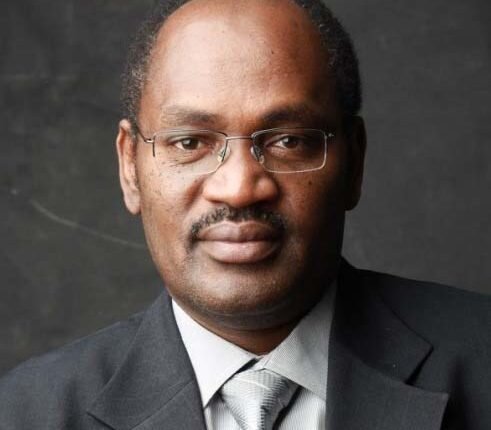Political Discourse in U.S. Election Campaigns… Lessons and Insights

By: Ramadan Ahmed
I have followed some of the ongoing U.S. presidential election campaigns and listened to a few speakers. I have gleaned some essential lessons that we, the people of the Third World in general and Sudan in particular, need. Before I delve into these lessons, I want to emphasise that the content of this article in no way praises American politics. Our view of the United States and its foreign policy remains as it is: it is an imperialist state whose foreign policy is devoid of ethics and values, driven solely by interests, even if that requires occupying countries, supporting oppressive regimes, discarding human rights values, and clinging to anything that would enforce American hegemony.
With this introduction, let me get to the heart of the matter: political discourse in U.S. election campaigns. I watched speeches by Mrs. Michelle Obama, her husband, Barack Obama, and Ms. Oprah Winfrey. The latter is among the most famous talk show hosts and has remarkable African humanitarian initiatives. The political discourse of the Democrats in general, and these three in particular, is directed at the entire American public, especially the supporters of both competing parties, the Republicans and Democrats. Its message is, “Regardless of the ship that brought your ancestors to the United States, we are all now in the same boat.”
Nations need this unifying political discourse during times of political transition because it reassures people, inspires hope, removes all cultural, religious, ethnic, and political barriers, and makes the nation a common concern above all personal and factional ambitions. This type of discourse always comes from a confident entity, sure of itself and the public’s trust, an entity with a national project aimed at progress and development.
The worst type of political discourse in such stages of a nation’s life is the one that incites against a particular group, making this hostility its goal. This is what the supporters of the Republican Party, especially those of Trump, are doing in their campaign, where they make the poor who are stranded in Latin American countries and are seeking better life opportunities by crossing the southern borders an enemy of their campaign. Such discourse, or hate, is directed against a specific societal group and spreads hatred. You end up hating and demonising a person you don’t even know, with no known enmity other than that they are categorised as “the other.” This type of discourse comes from an entity that is not confident in itself, is suspicious of everything, and resorts to this type of rhetoric to incite hatred against the rival or those close to the rival group.
The United States is currently going through the worst phase in its modern history, as former President Donald Trump spread hatred during his first term, leading to a sharp division in American society for the first time. The country is still suffering from the repercussions of Trump’s first term. Perhaps the occupation of Capitol Hill on January 6, 2021, by Trump’s supporters is the biggest testimony to the disastrous results of hate speech. In addition, America has started paying the price for its foreign policies that support oppressive regimes and Israeli occupation, as well as blatant interference in the affairs of other nations. What has happened is that the people of the world today have become more aware and conscious of the national interests squandered by puppet regimes. Amid the multipolar world, countries have begun to rebel against the hegemonic behaviour of the United States. The rush of countries to join the BRICS Plus in October 2023 in Johannesburg – South Africa, during the BRICS conference- is the most unmistakable evidence of this trend.
Mr Obama and his wife both stand out for their strong personalities, ability to influence, and eloquence in speech. With them, Ms Oprah Winfrey, the well-known media personality who built herself up from nothing and became one of the wealthiest individuals in the United States while also caring for the poor and establishing schools and educational institutions in Africa. The discourse from these three and others in the Democratic Party’s campaign is the type of political discourse that should prevail in all phases of political transition in a nation’s life.
The discourse from these figures, who support the presidential campaign of the Democratic Party’s candidate, Kamala Harris, has profound implications and is a true indicator of the direction of American politics in the coming phase. This is because non-white American communities have become influential in the country, and this political discourse resonates with them perfectly. Indeed, American politics is established, and the elected president does not have the power to change it. However, the most important thing is a significant grassroots movement and a heightened awareness of the need to “do something.” This is the prevailing slogan in Kamala Harris’s campaign. And “doing something” necessarily means reconsidering domestic and foreign policies, regardless of how long this change process might take, knowing that the beginning of the end of the old regime is visible.
We can summarise the most important lessons from the U.S. presidential election campaign as follows:
• National interest supersedes any other interest.
• Political rivalry remains political no matter how intense it gets, and it does not prevent rivals from cooperating and coordinating on national issues.
• Prudent political discourse is one that elevates national interest, transcends bitterness, rallies efforts, unites voices, and inspires hope for a better future.
• National identity knows no allegiance other than to the nation.
• Political transitions are the most fragile stages in a nation’s life and cannot tolerate ambiguous discourse, let alone hate speech.
• The emergence of hate speech in political discourse, even against an isolated group, can poison the political atmosphere and pave the way for civil wars.
• Political differences, no matter how intense, should be resolved at the ballot box, not the bullet box.
Shortlink: https://sudanhorizon.com/?p=1283

